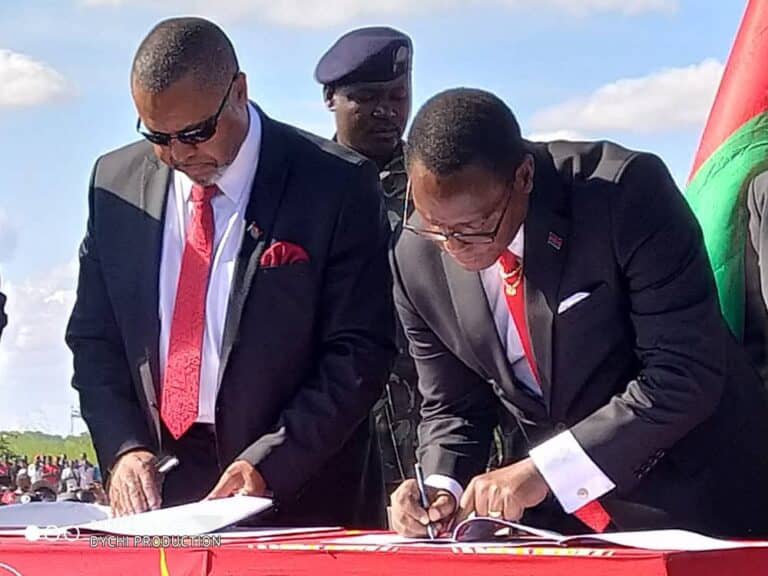By Vincent Gunde
On the 13th of February, 2025, Malawians will take to the streets of Lilongwe and Mzuzu in a mass demonstration, asserting their rights to reject the government’s controversial plan to procure a surveillance machine. This march is not about seeking permission; it is about asserting the people’s right to say “NO” to policies that threaten the nation’s democracy, privacy, and fundamental freedoms.
The message from the people is loud and clear, not just directed at the Malawi Communications Regulatory Authority (MACRA), but also aimed at the government, the international community, and future generations. The protesters are sending a resolute promise to the authorities: they will not rest until this surveillance plan is scrapped. They are united in ensuring that Malawi does not become a police state, emphasizing that Malawian democracy will not be bought, nor will their freedoms be traded.
The streets of Malawi will echo with the cry for democracy, freedom of expression, and the right to privacy. The protestors are urging all peaceful citizens to join them in this fight for their rights, with a firm call to preserve the values that underpin the country’s democratic foundation. The February 13 protest marks a pivotal moment where citizens, from all walks of life, will stand together, declaring that they will not allow their rights to be infringed upon.
Political analyst Burnett Munthali has weighed in on the government’s plan, offering a sharp critique of the surveillance machine proposed by MACRA. According to Munthali, this is not merely a technological issue, but a deeply political one that strikes at the heart of human rights and democracy. He argues that the decision to procure this surveillance system is not about protecting citizens or enhancing national security; it is about power – power that is wielded not in service of the people, but against them.
“Malawi’s Constitution guarantees the right to privacy and freedom of expression,” Munthali says. “The people of Malawi have the constitutional right to privacy, which includes the privacy of their communications. By attempting to implement this surveillance system, MACRA and the government are openly violating these fundamental rights.”
The political analyst further observes that the government’s actions reflect a deeper issue—fear. “When a government spies on its own people, it is a government that fears them. And when a government fears its citizens, it has already failed in its duty to lead with transparency, accountability, and justice.”
Munthali draws on historical precedents to highlight the dangers of surveillance systems. He points to Zimbabwe, where government surveillance led to the arrest and persecution of journalists and opposition figures. In Uganda, spyware was used to track and suppress human rights activists. In Rwanda, surveillance technology was weaponized to intimidate political dissidents. These examples, Munthali argues, show the destructive potential of surveillance in the hands of governments that use it to stifle opposition and dissent.
“The surveillance machine that is being proposed is not meant to serve the people of Malawi,” Munthali asserts. “Its sole purpose is to consolidate power in the hands of a few and ensure that any voice of dissent is silenced. Malawians will not allow their country to be turned into a surveillance state.”
In the face of these concerns, Munthali calls on MACRA to immediately halt the procurement process, urging Parliament to launch an investigation into the matter and hold those responsible accountable. He also demands that the government reaffirm its commitment to upholding the constitutional rights and freedoms of the people.
The protests on February 13th will undoubtedly be a significant moment in Malawi’s political landscape, as citizens come together to defend the democratic principles that have guided the country since its independence. As the government faces mounting pressure to reconsider its surveillance plans, it remains to be seen whether the authorities will heed the call of the people, or continue down a path that risks undermining the very freedoms that define the nation.
For now, one thing is certain: Malawians are resolute in their determination to protect their democracy, their privacy, and their rights. The march on February 13th is not just a protest against surveillance; it is a reaffirmation of the people’s commitment to a free, fair, and democratic Malawi.




